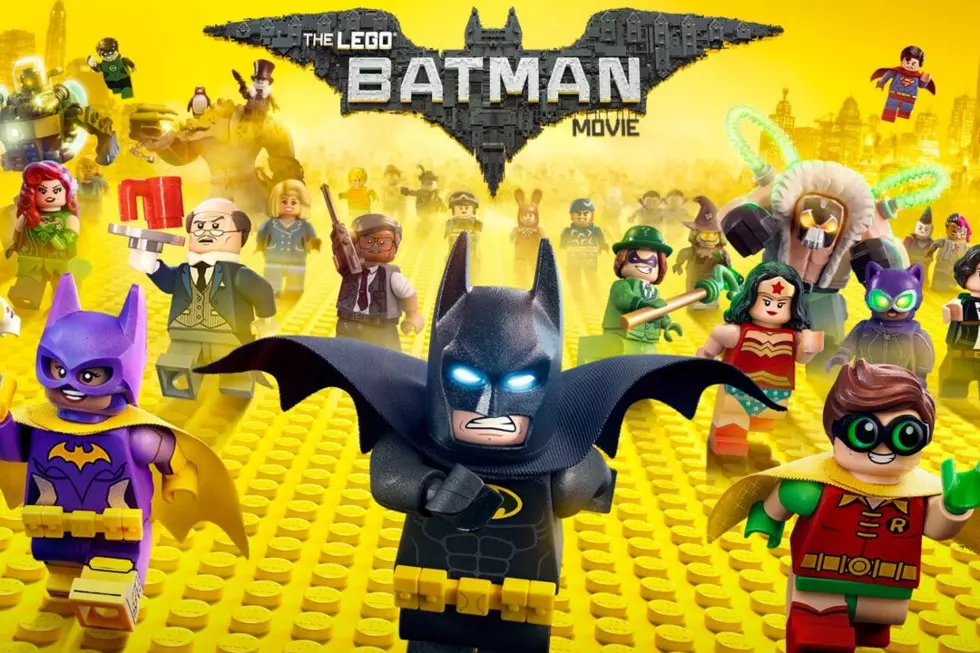
Ask Chris #28: Robin, Robin, Robin
Here at ComicsAlliance, we value our readership and are always open to what the masses of Internet readers have to say. That's why we've given Senior Writer Chris Sims the punishment pleasure of stepping into the grand tradition of the Answer Man as he responds to your reader questions!

Q: What are good stories that show the importance of Robin to the Batman mythos? -- royalconstantin
Q: Who is your favorite/ least favorite Robin and why? -- charpalnaut
A: I got a few questions about Robin this week (and as I usually get zero questions about Robin, this represents an increase of infinity percent), which is a little strange. Despite my well-known love of Batman, Robin isn't a character I spend a lot of time thinking about.
That doesn't mean I don't like Robin -- when I was a kid, I wanted to be Robin, and I had the underoos to prove it, complete with a yellow cape that Velcro'd to the back of the t-shirt, which I'd wear on neighborhood patrols. In the same way that Jimmy Olsen represents the highest ideal for a young Superman fan ("Be a good person and Superman will want to be your pal!"), Robin was what I wanted to be: He got to hang out with Batman all the time. Really, though, I tend to prefer him less as a character, and more for what he represents and how he works as a narrative device that gives Batman a non-Alfred character to explain things to.
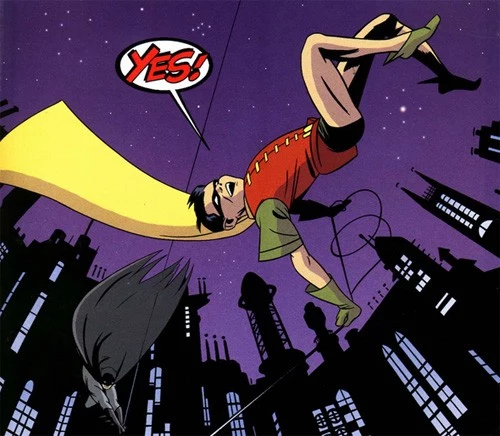
I've mentioned before that to me, Robin -- specifically Dick Grayson -- represents one of the most important aspects of Batman's character, in that it shows just how much he's able to change the world. One of the questions I got was "why has Batman spent the last 70 years hanging out with an underage boy," and while that's the undeniable setup for the old jokes that sent Dr. Wertham into a tizzy, it's actually simple to answer: Because at the start, Robin is Bruce Wayne.
Both characters go through the exact same tragedy of watching their parents die in front of them, ostensibly leaving them alone in the world, but the difference is what happens next. Without his parents, Bruce Wayne was essentially left in the care of Alfred and Leslie Thompkins, and while they were able to keep him more-or-less sane (which is no small contribution, as I'll get to in a minute), they weren't able to temper his rage. Dick, on the other hand, is raised by Bruce, a man who has been there and understands his loss, and the results are dramatically different.
Bruce's actions as Batman are extremely oppositional -- He might be the World's Greatest Detective, but overall he's a crimefighter, and everything he does, from his training in martial arts right down to his costume, are built on physicality and intimidation. Robin, however, is rooted in an entirely different philosophy. Batman's there to fight against crime for taking away his parents, but Robin's role has barely anything to do with getting revenge against Boss Maroni for killing the Flying Graysons. He's not there for vengeance, he's there to help.

I think it's actually a pretty poetic element that ties their actions into their origins: If Bruce had been a massive, intimidating martial artist who knew seven ways to disarm a thug from any position -- one of which hurts -- then he could've saved his parents from getting gunned down. All Dick Grayson's parents needed, however, was a safety net.
Again, it comes back to another question that people usually ask facetiously: Why would Batman, a guy with a black cape made of kevlar, dress a little kid up in the brightest possible colors and send him to fight armed crooks? The snappy answer is that he needs somebody to draw their fire (har har), but if you look at how the characters have developed, it's obvious. Dick may be the cornerstone and foundation of Bruce Wayne's legacy, but Bruce isn't trying to make another Batman, or even another vigilante. He's trying to make a hero, someone who is brighter than him both literally and figuratively.
Aside from the fact that it just sounds cool, there's a reason that when it's time for him to strike out on his own, Dick Grayson gets the name "Nightwing" from Superman, a guy who so obviously represents light that he literally gets his powers from the Sun.
Bruce and Dick start at the same place -- between the dead bodies of their parents, taken from them by crime and chance through no fault of their own -- but because he's taken in by someone who has been there and fought through it, Dick ends up at a dramatically different place. For all the fact that he's surrounded himself with a network of sidekicks and has been a member of the Justice League for decades, Bruce is still characterized as grim and alone, but Dick? Dick's no less driven or skilled, no less devoted to battling crime and injustice, but he's also happy.
In effect, by allowing Dick Grayson to become Robin, Bruce saves him from having to become Batman, and in doing so, saves himself. Even when Dick becomes Batman, he's not the same kind of Batman Bruce was.
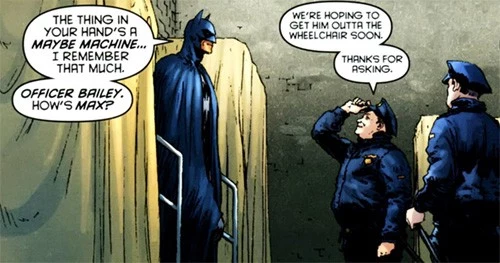
He's nice. He makes jokes when he fights crooks. He's well-adjusted. He's popular. He has friends. He was Best Man at Wally West's wedding, and used to shack up with Starfire, a six foot-tall alien amazon sex queen. And unlike Batman's "Bruce Wayne" persona, none of this was an act, it's actually who he is. He's not afraid to let people into his life, because when the people he loved most were taken from him, Batman stepped in to show him there were still others out there who cared.
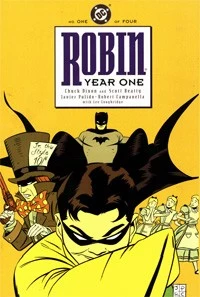 There's not really one story that encapsulates everything, but if you're looking for a good one that hits the high points, you could do a heck of a lot worse than "Robin: Year One," which is pretty much exactly what it sounds like. The second half delves a little into setting up some stuff that was going on in "Nightwing" at the time, but along with the similarly awesome "Batgirl: Year One," it unquestionably represents Chuck Dixon and Scott Beatty's best work, and Javier Pulido's artwork is phenomenal. He perfectly captures the contrasts between Batman and Robin, as well as their similarities.
There's not really one story that encapsulates everything, but if you're looking for a good one that hits the high points, you could do a heck of a lot worse than "Robin: Year One," which is pretty much exactly what it sounds like. The second half delves a little into setting up some stuff that was going on in "Nightwing" at the time, but along with the similarly awesome "Batgirl: Year One," it unquestionably represents Chuck Dixon and Scott Beatty's best work, and Javier Pulido's artwork is phenomenal. He perfectly captures the contrasts between Batman and Robin, as well as their similarities.
Also, it does a pretty good job of casting Two-Face as Dick Grayson's arch-nemesis, an idea I've always thought deserved another shot after being done so remarkably poorly in "Batman Forever." I don't want to get into another long, rambling Two-Face discussion, but I think the contrast between the boy Batman did save and the man he couldn't save makes for a pretty good contrast.
As to which Robin I prefer, that's a much tougher pick for me. I mean, I've liked reading stories about Damian Wayne more than any other version, but that has less to do with liking him as a character and more to do with the fact that he's been at the center of the best Batman comics of my lifetime. I think they've all got a very interesting and very significant place in the greater mythology of Batman.
Dick Grayson, as discussed, is essentially what would've happened if "Batman" had been there to help Bruce Wayne when he was a child, and serves as a living example of how much Batman helps others, but that only really comes into play once he gets older and moves on from the role.
Jason Todd, however, represents Batman's failure, and the idea that in Batman's world, there are some people that he can't save. Even before "Death in the Family," Jason is already lost. There's too much anger in him to become the "hero" that Dick Grayson becomes; he never gets away from being a vigilante:

This too goes back to his origin. With Dick, Batman was there right at the moment his parents died to take him in and show him a better way, but with Jason, he doesn't find him until much later, discovering him trying to steal the hubcaps from the Batmobile. He's already been corrupted by a lonely life on the streets in which no one tried to help him. He has no one to save him until it's far too late. Even his death comes because he goes off on his own; the Joker didn't wake up that morning planning to kill Robin, it was a crime purely born from opportunity, and again, Batman arrives too late to save him.
Well, actually, the Joker probably did wake up that morning planning to kill Robin, but you know what I mean.
If Dick Grayson is what happens to Bruce Wayne if Batman's there to help him, then Jason Todd is what would've happened to him without Alfred and Leslie Thompkins. If there had been no one there to stop his rage from consuming him, to give his life structure after it was taken away, then Bruce Wayne would've gone off angry and gotten himself killed.
Tim Drake, then, is what Batman would eventually become. The detective who puts the clues together and then chooses to become a hero, initially driven not by tragedy, but purely out of a desire to help others. Specifically, to help Batman. Of course, this being super-hero comics, that tragedy eventually came, but it always felt like an unnecessary gilding of the lily that makes him more like Dick Grayson and seems less like an attempt to advance the character and more like a reason for him to be chilling out at Wayne Manor at 2 AM on a school night.
Honestly, I haven't read too many Tim Drake stories, but of the ones I have, I prefer the ones that treat him like a teenage version of Batman -- the same detective mentality and approach to his problems, but with a lighthearted nature and the modern-age Batman aspect of doing this because it's something he wants to do. Adam Beechen's extremely underrated run on the title post "One Year Later" actually did a great job with this.
Finally, there's Damian Wayne, who was probably the only one explicitly created to be a reflection of Bruce, and as a result, reads like a synthesis of the other three. Like Jason Todd, he shows us what would have happened to Bruce without Alfred and Leslie Thompkins, but with Damian, they're not just gone, they're replaced by a cadre of assassins. When he first appears, he has all of Batman's fighting skills, but no self-control, and no motivation to use it, and it makes sense that he only really becomes Robin after the "death" of his father in "Final Crisis." As Bruce's direct descendant, the tragedy seems to be a necessary element, but like Tim Drake, there's a choice involved, as it also comes with a complete rejection of his mother:
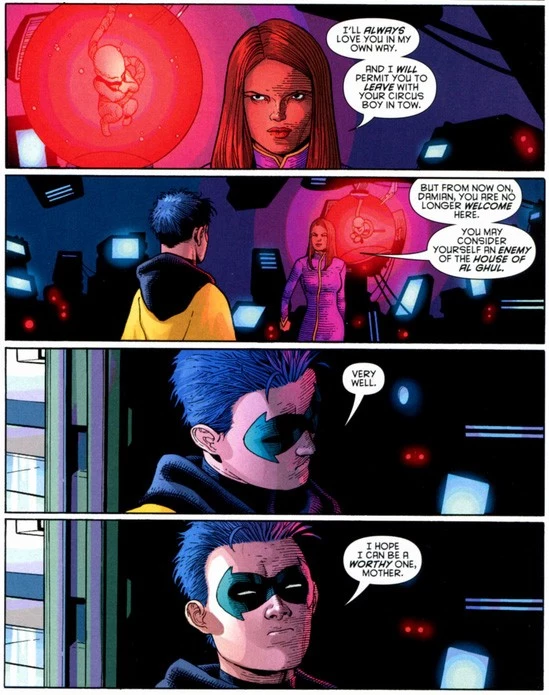
He does this because he's been shown something better he can do than just the mindless life of murder he'd have in the League of Assassins. Dick Grayson has rescued him from himself, thus taking his place in the cycle that began when Bruce rescued him.
Is any of this strictly necessary for the greater Batman "mythos?" I'm not sure. There are plenty of great Batman stories that don't have any sign of pixie boots, after all, but I do think that it's a defining factor for the version of Batman that exists in the DC Universe.
And now, a few quick answers:
Q: Which comics continuity has your favorite mythological characters? -- talestoenrage
A: I'm guessing you mean "characters based on ancient myths and legends" and not just "super-powered immortal beings that don't actually exist," because with the latter, we'd be here all day. With the former, though, there's no question:
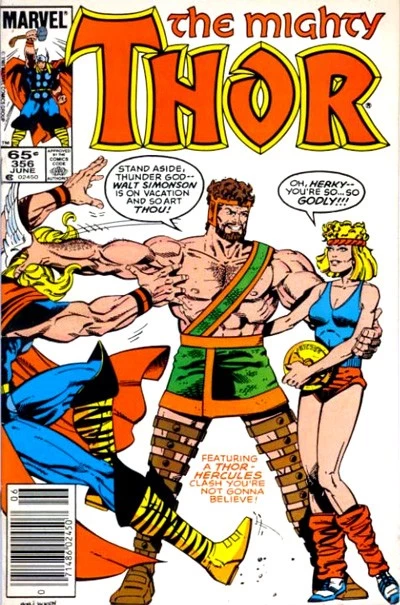
Thanks to guys like Jack Kirby, Walter Simonson, Greg Pak, Fred Van Lente and others, Marvel's gods have it all over anybody else's, if only for the sheer complexity of their footwear.
Q: In your opinion, is Clark Kent the real guy or the disguise - or something else? Also, thoughts on Zack Snyder? -- MagicLoveHose
A: I don't think there's that much a defined split in Superman's two identities. Yes, he pretends to be a clumsy oaf who needs glasses, but the things he does as Clark Kent -- the news stories he writes, the way he treats his colleagues, the love he feels for Lois Lane -- are no less a direct result of his personality than the fact that he rescues people and stands up to the injustices that no one else can battle against as Superman. They all come from the same place, which is why I think it's often silly when a creator does a story where Superman loses touch with his "human side." It'd be like me losing touch with the side of me that likes pancakes. It's not going to happen.
As for Visionary Director Zack Snyder™, well, I haven't had a chance to see "300" and I have absolutely no desire to see "Watchmen" as a film, so the only thing I've seen of his was the "Dawn of the Dead" remake that James Gunn wrote. So I guess his Superman movie might be good if he has Superman fight a zombie that looks like Burt Reynolds?
Also if Ving Rhames plays Jimmy Olsen.
Q: Are you ready to apologize for dissing Turtwig yet? -- teamsmithy
A: I don't know, is Turtwig ready to stop being lame?
Q: NYC: More worried about Pimps or more worried about CHUDs? -- BenjaminBirdie
A:
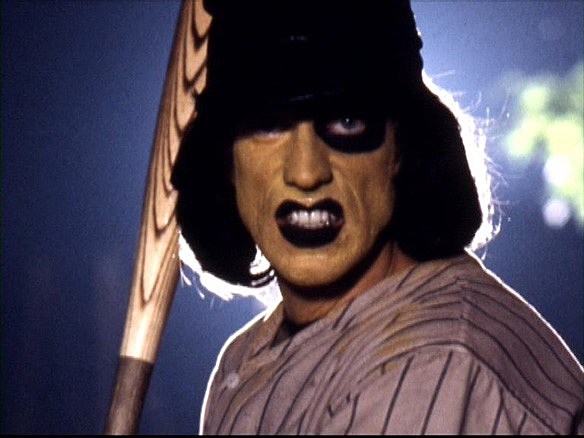
That's all we've got for this week, but if you've got a question you'd like to see Chris Sims answer, why wait for next week's column? If you're at the New York Comic-Con this weekend, just come to our panel in Room 1A24 on Saturday at 5 PM, where Chris, Laura Hudson, Caleb Goellner, David Brothers and David Uzumeri will be answering your questions LIVE, complete with special surprises and nifty giveaways! Don't miss it!
More From ComicsAlliance
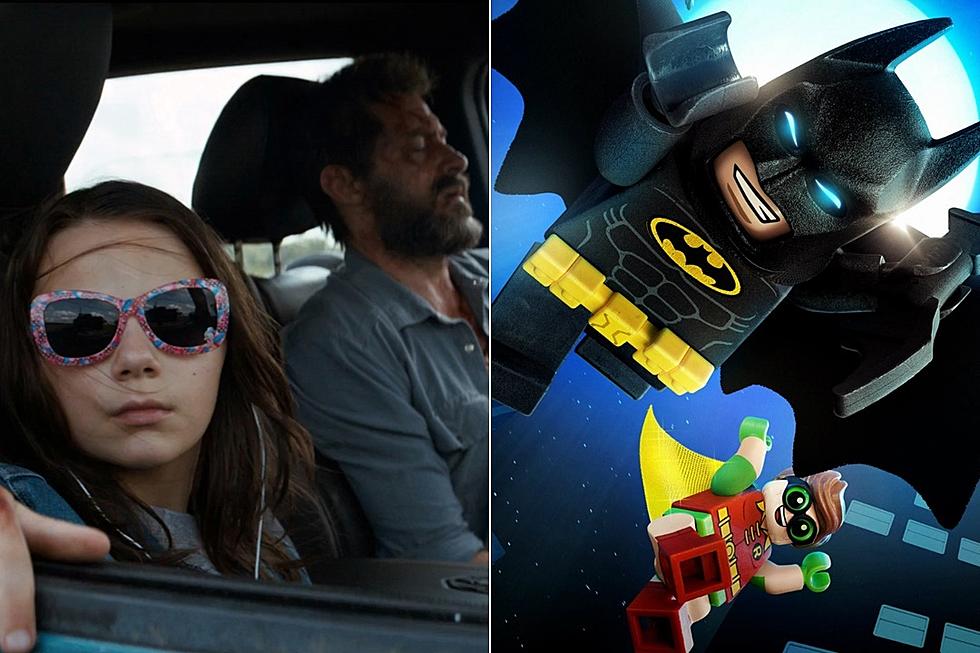
![A Jealous Robin Heads To Bludhaven In ‘Nightwing’ #16 [Exclusive Preview]](http://townsquare.media/site/622/files/2017/02/NTW_Featured.jpg?w=980&q=75)


